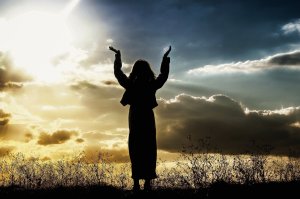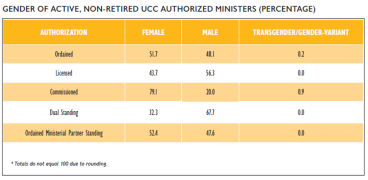On June 9, 2020, I will celebrate the 50th anniversary of my ordination into ministry. Fifty-five years ago, I was an ordinary member of a Methodist church when I had a powerful God experience and a sudden, unexpected call into ministry. Deemed totally unacceptable by the ministers at the church, the congregation provided a spirit-filled support system; the seminary accepted me as a provisional student hoping I would go away; and God enabled me to complete my seminary degree and present myself for ordination.
Now the Methodist Church in 1970 was not enthusiastic about women going into the ministry, especially married women with children. On the day of my ordination, I was one of two women being ordained, (the other woman was single without children) along with forty- three men. When the Bishop placed his hands on my head and pronounced my name, he publicly added that “I was a non-unanimous choice for ministry” which meant I had completed my seminary requirements, but I did not belong in ministry.
Immediately after the ceremony, the Bishop assured me there would be no jobs for me in the entire state of Illinois or maybe in the whole world and walked away. But the Bishop had not counted on the power of God in the world and change was already in process.
At the same time, I was being ordained, the women of the Glenview Community Church (UCC) in Glenview, Illinois were looking for a woman pastor who might come to work with the women of the church. At the cutting edge of change, they wanted to experience the ministry of a woman and were willing to put their money and convictions into getting one.
God prevailed and these amazing women found me in an article about my ordination in the Chicago Tribune newspaper and hired me to establish a new ministry for women at the church without asking permission from anyone: neither the other clergy, the executive council, the trustees nor the congregation. Their rationale was simple: They were paying my salary, outfitting my office and so I belonged to them. Their one piece of advice was to do ministry in groups because it was more financially efficient to work with larger numbers. (More “bang for their buck”!) The first small group ministry in the United Church of Christ was established at the Glenview Community Church in September 1970.
In terms of data and statistics in the UCC, the Statistical Profile in 2003 indicated only 27% of all ordained ministers identified as female. Imagine what the percentage of women clergy was like thirty-three years earlier in 1970 – probably less than 5%!
Immediately after this ministry became a reality at the Glenview Community Church, the first National UCC small group ministry meeting was held in the early 1970s and I was asked to design a new ministry of small groups to present to the denomination and lead the gathering. These small group experiences were established not as therapy groups to solve life problems. Rather I designed them as opportunities to talk about life and the revolutionary changes that were happening everywhere in the 1970s. And that design included the active role of prayer in a small group ministry and involved both clergy and laity.
At the same time, my ministry at the Glenview Community Church was establishing small groups for women, men, families and couples, all with the same agenda: to explore the expanding universe of changes that were impacting individuals, families and the church within a small group, loving setting. My ministry thrived in this exciting environment. I gladly left the Methodists and became a part of the United Church of Christ.
The growing drug culture opened our eyes to a changing role for adolescents and young people who were actively challenging society and the church to pay attention to their unstoppable voices of discontent. We began to redefine some of our cherished assumptions of appropriate models of family life and individual lifestyles as more changes surrounded us. The church was challenged to open wide their doors to everyone who wanted to enter. Former prohibitions against membership and leadership were cast aside in these momentous times of role redefinition and freedom. The UCC was a leader in removing boundaries for both ministry and membership.
In the 1980’s I established an experimental interfaith community where all people could worship together in shared and meaningful dialogue which included a Christian Communion service. We called it “The New Church: A Caring Community”. It still meets occasionally.
In the middle ’90s, in response to the stated belief that the UCC was only interested in political action and not in Spiritual life, I initiated a research project in spiritual life with one hundred UCC Churches reflecting all the diversity in the UCC. I knew this powerful assumption was simply not true. The results of the study showed undeniably that people in the UCC had powerful spiritual lives in which God was very real. They just didn’t talk about these experiences.
From the wealth of these data on spiritual life, I established the “Spiritual Life Team” program which is actively creating opportunities for all people to identify and share their “God Moments”, pray out loud and bring the voice of spirit into their congregations, families and the community. This program continues to grow opening wide the doors of powerful spiritual connections between diverse groups of people.
The current problem that is afflicting ALL denominations is the decline in membership that is becoming all-pervasive in our current religious world. In the fifty years I’ve spent as a minister, the power of the church has declined; membership is disappearing; the future of young people entering church leadership is almost non-existent. And God appears to have also left the religious scene.
And yet, I know that God is not absent. And I know that spiritual life is the unifying voice that can bring everyone to the same table. Everything in my fifty years of ministry has supported that conviction. God is real and accessible to everyone, everywhere – no exceptions. Life without God’s Presence is untenable and unsustainable.
We’ve overcome so many barriers. We’ve worked hard to be politically correct for all people. We’ve fought the good fight for women clergy: In the 2019 UCC Statistical Profile, CARD reported “51.7% active, non-retired ordained women in the UCC and 48.1% male”: a significant shift from data collected in 2003.
We’ve opened doors to everyone and brought ministry into an open world where all can participate. We’ve learned to fight hard for people’s rights and to improve the lot of those who are impoverished and homeless. And yet we are not growing. And we are joined by other denominations who are facing the same hopelessness.
Is it too simple…too naïve to think that our next step may be to learn how to love each other? While we are fighting battles for human rights, can we feel our connections as human beings? Can clergy and laity work in equal loving connections with each other? Can we cease being a hierarchy of responsibility and power and reconnect to our call to serve?
Is love really the grounding force that Jesus spoke about? If our words, “God is Love” are true, then what are we doing to serve this God of Love that eliminates the need for power and celebrates our loving connections with any and all people?
At the beginning of my ministry, immediately after my ordination and before the women of the Glenview Community Church hired me to be their minister, an interfaith group of five women approached me with a request: “Teach us about God”: two Protestants, two Catholics, and one Jew.
We spent a few months together talking and praying and listening to each other. When it was time to stop meeting, they gave me a book with the dedication: “To Bobbie McKay who showed us that God is Love.” That was fifty years ago. And the message is entirely true and always has been true.
There is such a loss of love everywhere in the world. We are approaching another political season where love will take last place in our election process. I dread the animosity of the last election that turned churches into hating factions.
I know that God is Love and that only as we learn to really love and appreciate and value each other will we be able to honestly call ourselves: “The Church of Jesus Christ in the World”. Without love, we will not survive. Never has that been more true!
And I am grateful, beyond all words, for these fifty years of love and service.



Recent Comments